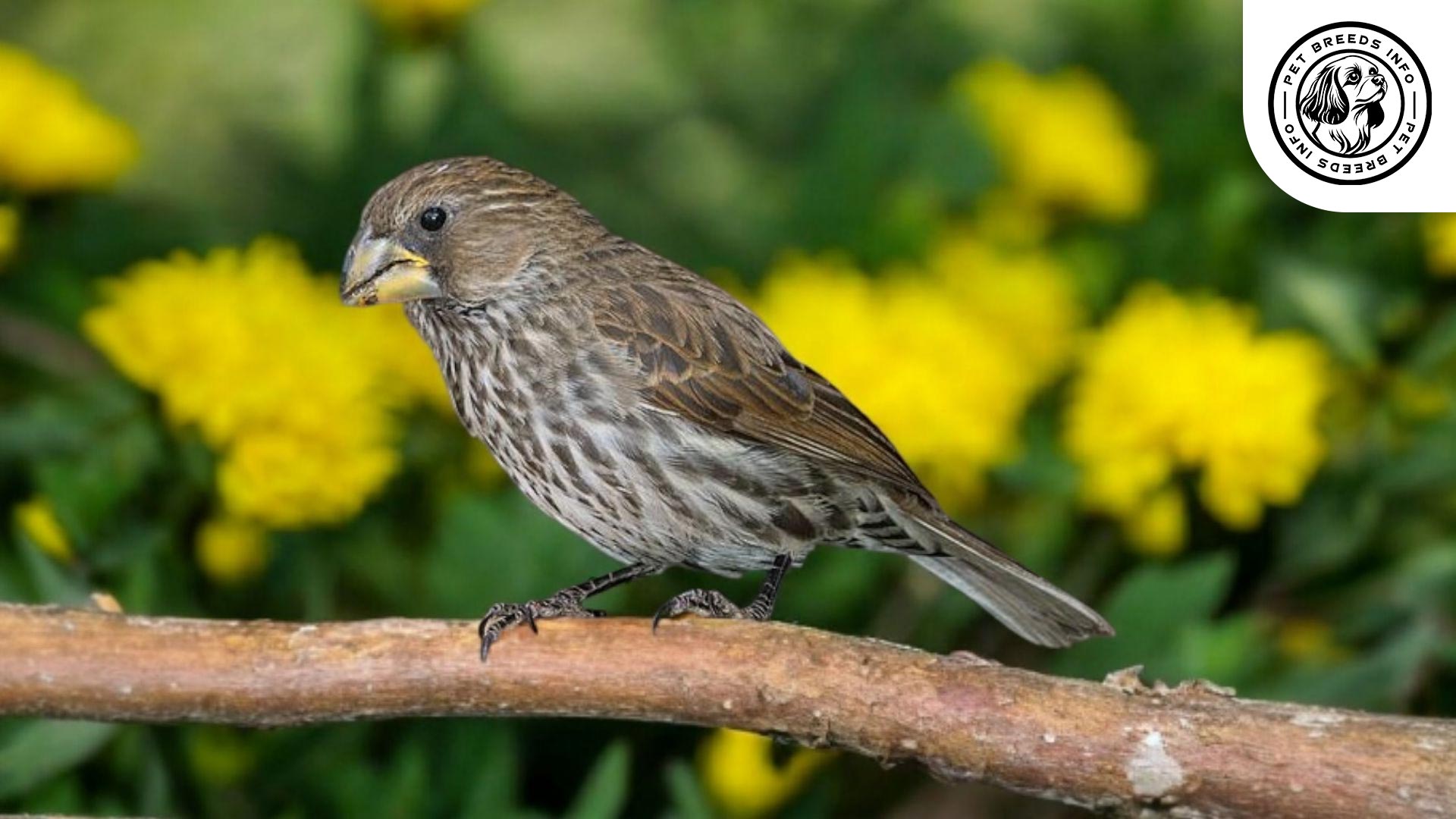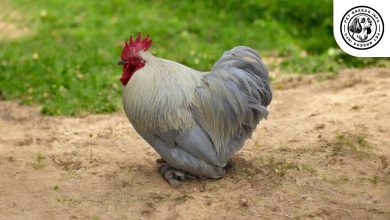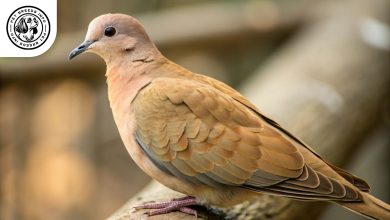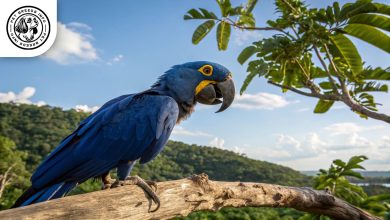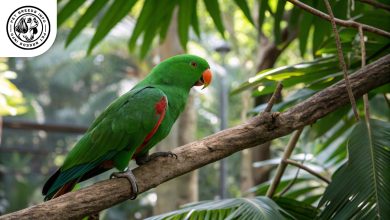Grosbeak Weaverfinch Breed: Personality, Lifespan & Care
General Introduction of the Breed
The Grosbeak Weaverfinch is a unique and striking bird species known for its vibrant plumage and social behavior. It is commonly referred to simply as the “Weaverfinch” due to its nest-weaving abilities. Although not widely domesticated, this bird is admired by bird enthusiasts.
Originating from Africa, particularly in regions of sub-Saharan Africa, the Grosbeak Weaverfinch thrives in savannahs, woodlands, and grasslands. It has a long history of adaptation to various environments, making it a resilient and adaptable species.
Table of Contents
| Common Name | Grosbeak Weaverfinch |
| Scientific Name | Amblyospiza albifrons |
| Origin | Sub-Saharan Africa |
| Size | 12–15 cm (4.7–5.9 inches) |
| Lifespan | 5–8 years |
| Colors | Yellow, brown, black with streaked patterns |
| Talking Ability | Very low |
| Noise Level | Moderate |
| Social Behavior | Social with other birds, moderate human bonding |
Physical Characteristics
The Grosbeak Weaverfinch is medium-sized, typically measuring between 12 to 15 cm (4.7 to 5.9 inches) in length. Males are often slightly larger than females.
This bird’s plumage varies in colors, with shades of yellow, brown, and black being the most common. Some individuals display streaked patterns on their feathers, providing excellent camouflage in their natural habitat.
It has round, dark-colored eyes that enhance its keen vision. The beak is large and strong, well-adapted for cracking seeds.
Its tail is relatively short compared to its body length, while its wings are well-developed for swift flight.
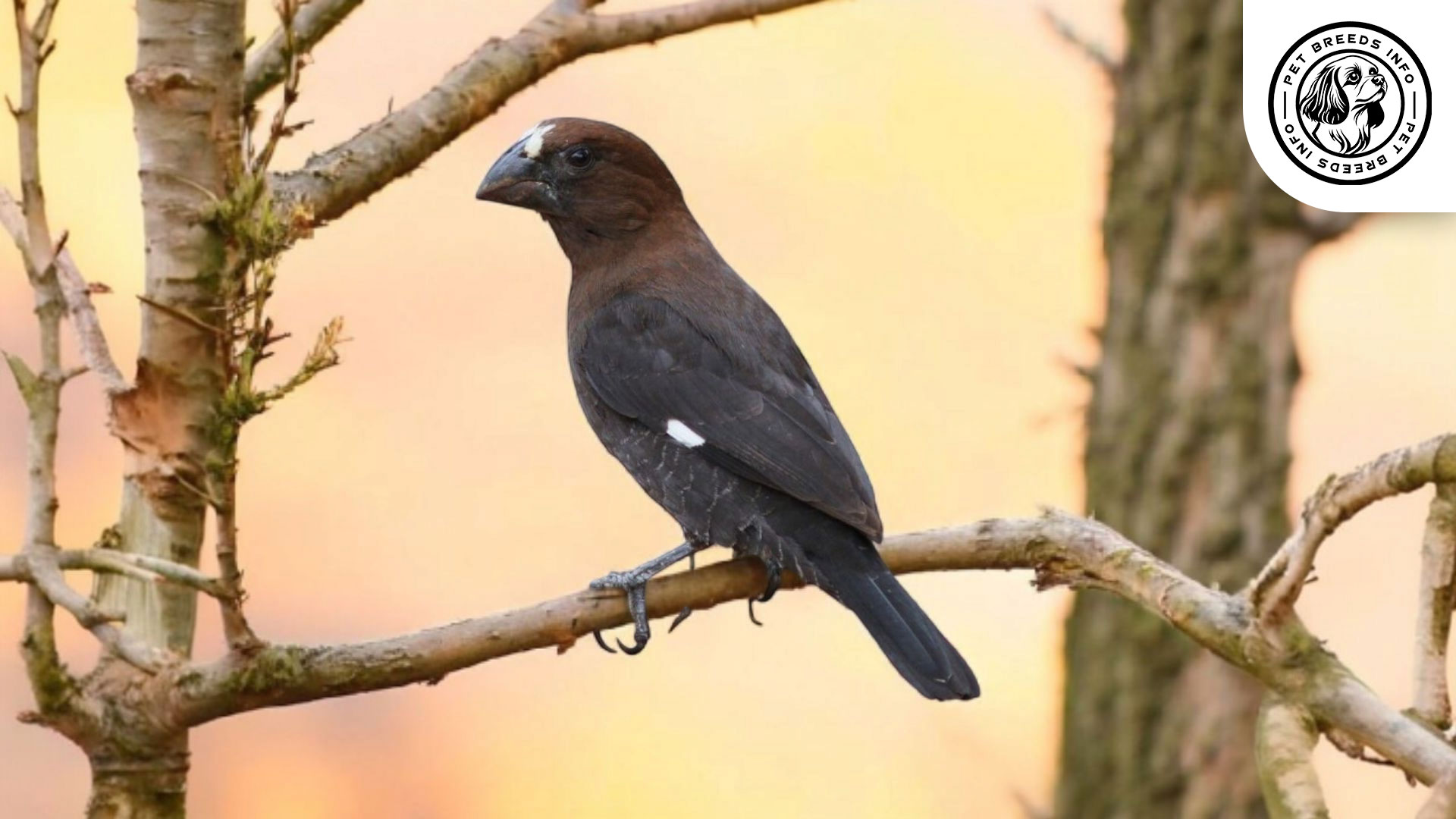
Personality and Temperament
The Grosbeak Weaverfinch is highly intelligent and exhibits problem-solving skills, especially when building intricate nests. It enjoys an active lifestyle and requires space to move freely.
Bonding with its owner may take time, but once accustomed, it can display a moderate level of attachment. It is generally social with other birds and does well in aviary settings.
While not as playful as parrots, it enjoys exploring its surroundings and interacting with objects. It may become uneasy with drastic environmental changes.
Care and Maintenance Requirements
To keep a Grosbeak Weaverfinch happy, it needs a spacious aviary or a large cage allowing flight. Regular physical activity, such as flying between perches, is essential for its health.
This bird thrives in warm environments and may struggle in extreme cold. A well-lit, ventilated space is recommended.
Minimal grooming is required; occasional feather inspection and nail trimming are sufficient. Bathing options should be available in the form of shallow water dishes.
Read More: Dutch Bantam Chicken
Keeping living spaces clean, providing fresh water, and preventing drafts are key to maintaining its well-being.
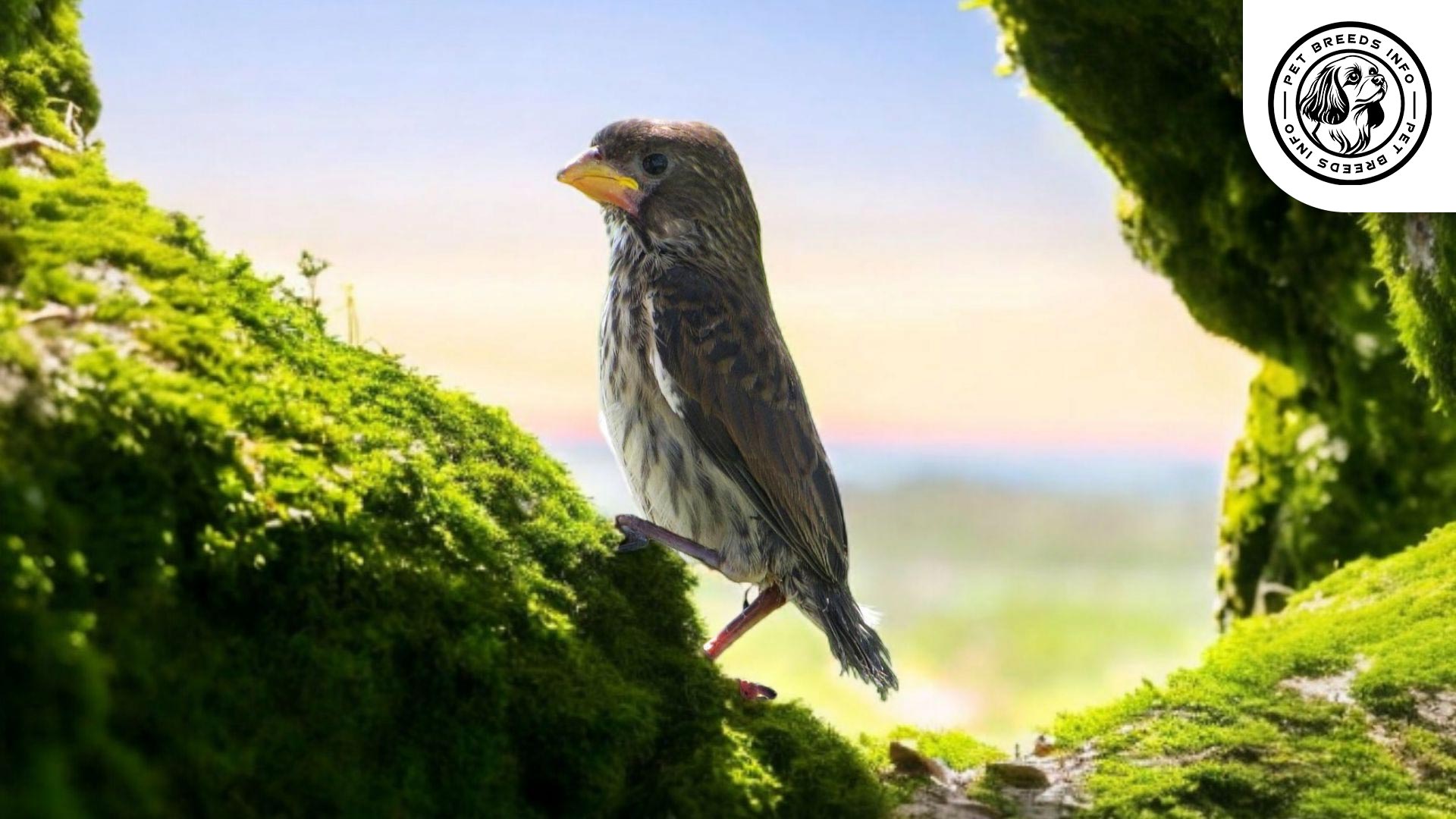
Diet and Nutrition
The Grosbeak Weaverfinch primarily feeds on seeds, grains, and occasional fruits. A balanced diet consists of millet, sunflower seeds, and fresh greens.
Avoid feeding chocolate, avocado, and caffeine, as these are toxic to birds. High-fat or processed foods should also be avoided.
Small portioned meals provided throughout the day ensure proper digestion. Clean food and water should be available at all times.
Health and Common Medical Issues
The Grosbeak Weaverfinch is prone to respiratory infections if kept in poor environmental conditions. Mites and feather plucking can also be challenges.
Regular veterinary check-ups help identify issues such as malnutrition, beak abnormalities, or infections early.
The bird has an average lifespan of 5 to 8 years with proper care and nutrition.
Read More: Goffin’s Cockatoo Bird
Training and Behavior Management
Training this bird requires patience. Positive reinforcement, such as offering treats, works best when encouraging desired behaviors.
Early exposure to various sounds, objects, and handling builds trust. Socialization with other birds can help develop confidence.
A calm and routine-based environment is essential for minimizing stress-related behaviors.
Interaction with Other Animals and Humans
The Grosbeak Weaverfinch can coexist peacefully with other finches and small birds when introduced correctly.
It is best suited for individuals or families who appreciate birds but do not require a hands-on pet. While it does not typically form deep attachments with humans, it adapts well when cared for respectfully.
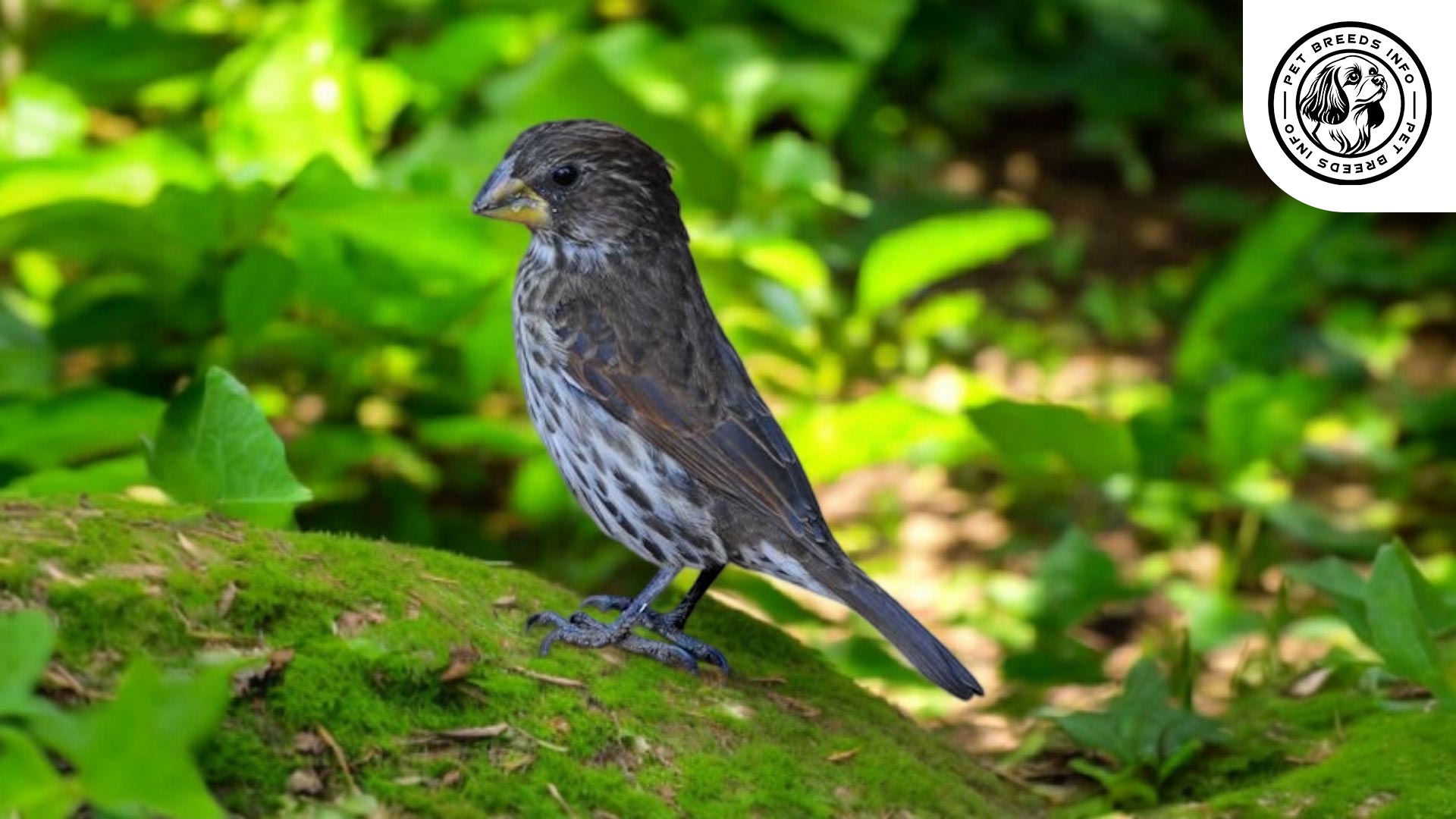
Price and Availability
The Grosbeak Weaverfinch is not as commonly bred for the pet trade as parrots or canaries. Prices range from $30 to $100 depending on age, rarity, and breeder.
It’s advisable to acquire this bird from reputable breeders or aviary specialists who ensure ethical care. Adoption options may be available through bird rescue organizations.
Conclusion and Final Thoughts
The Grosbeak Weaverfinch is an excellent choice for bird enthusiasts looking for a low-maintenance yet fascinating avian companion.
Its nature makes it suitable for a spacious aviary or bird-friendly home environment. However, it is not ideal for those expecting an interactive pet like a parrot.
Read More: Green-winged Pytilia Bird
Potential owners should consider its specific dietary, environmental, and social needs. With the right care, this bird can be a delightful addition to any bird lover’s collection.
FAQ
Is the Grosbeak Weaverfinch a good pet for beginners?
Yes, it is suitable for bird enthusiasts who prefer a low-maintenance bird, but it’s less interactive compared to parrots.
Can the Grosbeak Weaverfinch talk or mimic sounds?
No, it has very low talking or mimicking ability compared to parrots.
What should I feed a Grosbeak Weaverfinch?
A diet of seeds, grains, fresh greens, and occasional fruits ensures balanced nutrition.
How social is the Grosbeak Weaverfinch with humans?
It can form moderate bonds with humans but generally prefers the company of other birds.
What common health problems should I watch for?
Watch for respiratory infections, mites, and feather plucking; regular vet check-ups are recommended.
